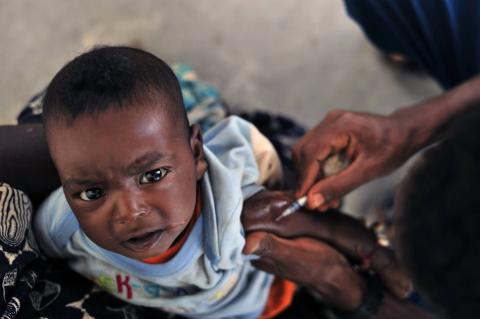Reaction to research revealing that infant microbiome development varies according to lifestyle
A metagenomic comparison of the infant gut microbiome of industrialised and non-industrialised populations reveals robust differences that researchers say are lifestyle-dependent. The research involved samples from infants of Hadza, a group of modern hunter-gatherers living in Tanzania, and is published in the journal Science.

Toni Gabaldón - microbioma infantil
Toni Gabaldón
ICREA research professor and head of the Comparative Genomics group at the Institute for Research in Biomedicine (IRB Barcelona) and the Barcelona Supercomputing Center (BSC-CNS).
This study analyses the faecal-associated microbiota of children (and their mothers) of Hadza hunter-gatherer populations in Tanzania, and compares the results with those of 17 other industrialised, non-industrialised or transitional populations from other parts of the world. The study is of high relevance as such populations are poorly studied in favour of those from highly industrialised societies and yet may better reflect the natural microbial associations that prevailed prior to industrialisation.
The data provide interesting information and suggest that differences between infants from industrialised and non-industrialised populations are subtle in the first months of life, but that these differences increase after 6 months of life. These differences would be increased by several factors, including mother-to-child transmission, transmission from other adults in the community, and exposure to different diets and lifestyles. The microbial communities found in transitional populations between industrialised and non-industrialised were intermediate, suggesting that exposure to different degrees of industrialisation accounts for much of the differences found. The authors also provide data suggesting that these differences may explain some immune system deficiencies in industrialised societies, due to a lack of certain bifidobacteria that is associated with higher levels of inflammation and immune dysregulation.
From a methodological point of view, the results should be considered preliminary because of the small sample size in the Hadza population and the methodological differences used in the different populations compared (samples taken at different times and in different ways, analysed in other studies, etc.). These are common weaknesses in meta-analyses and in difficult to obtain samples and the authors discuss them appropriately. The involvement of local experts in the study is lacking. Greater involvement of scientists close to the study populations, not only in sample collection, but also in analysis and interpretation would help to reduce the knowledge bias we have regarding populations in the global south.
Matthew R. Olm et al.
- Research article
- Peer reviewed
- People



